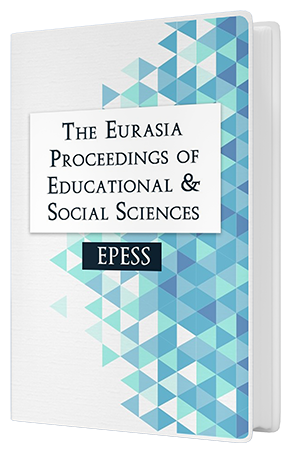Social Studies Teacher Candidates' Use of Technology and Digital Citizenship Practices
DOI:
https://doi.org/10.55549/epess.995333Keywords:
Digital citizenship, Technology, Social studies, Teacher candidatesAbstract
Today, with the rapid spread of the internet, people have become more interested in digital media. For this reason, the concept of citizenship has taken its place in the technology environment and has started to gain different meanings. The aim of this study is to determine the level of technology use of social studies teacher candidates, their perception of digital citizenship elements focusing on online behavior, and their practices in this regard. The participants of the study consisted of 84 social studies teacher candidates at the level of four grades studying in Malatya Inonu University. The data of the research were applied to the participants who voluntarily participated online in December 2020 through the Google form created as closed and open-ended. The data of the study were applied to the participants who voluntarily participated online in December 2020 through the Google form created with closed and open-ended questions. In this context, first of all, the participants were asked to answer various demographic information such as gender, grade level. Then questions about technology usage habits; device usage, internet access, activities they do at home were evaluated. Then, after determining the perceptions of digital commerce, digital access, digital ethics, digital law, digital health, digital security, digital communication, digital literacy, digital rights and responsibility concepts, which are sub-dimensions of the concept of digital citizenship, the life practices of the participants on this subject were revealed.Downloads
Published
Issue
Section
License
Copyright (c) 2021 The Eurasia Proceedings of Educational and Social Sciences

This work is licensed under a Creative Commons Attribution-NonCommercial-ShareAlike 4.0 International License.
The articles may be used for research, teaching, and private study purposes. Any substantial or systematic reproduction, redistribution, reselling, loan, sub-licensing, systematic supply, or distribution in any form to anyone is expressly forbidden. Authors alone are responsible for the contents of their articles. The journal owns the copyright of the articles. The publisher shall not be liable for any loss, actions, claims, proceedings, demand, or costs or damages whatsoever or howsoever caused arising directly or indirectly in connection with or arising out of the use of the research material. All authors are requested to disclose any actual or potential conflict of interest including any financial, personal or other relationships with other people or organizations regarding the submitted work.




